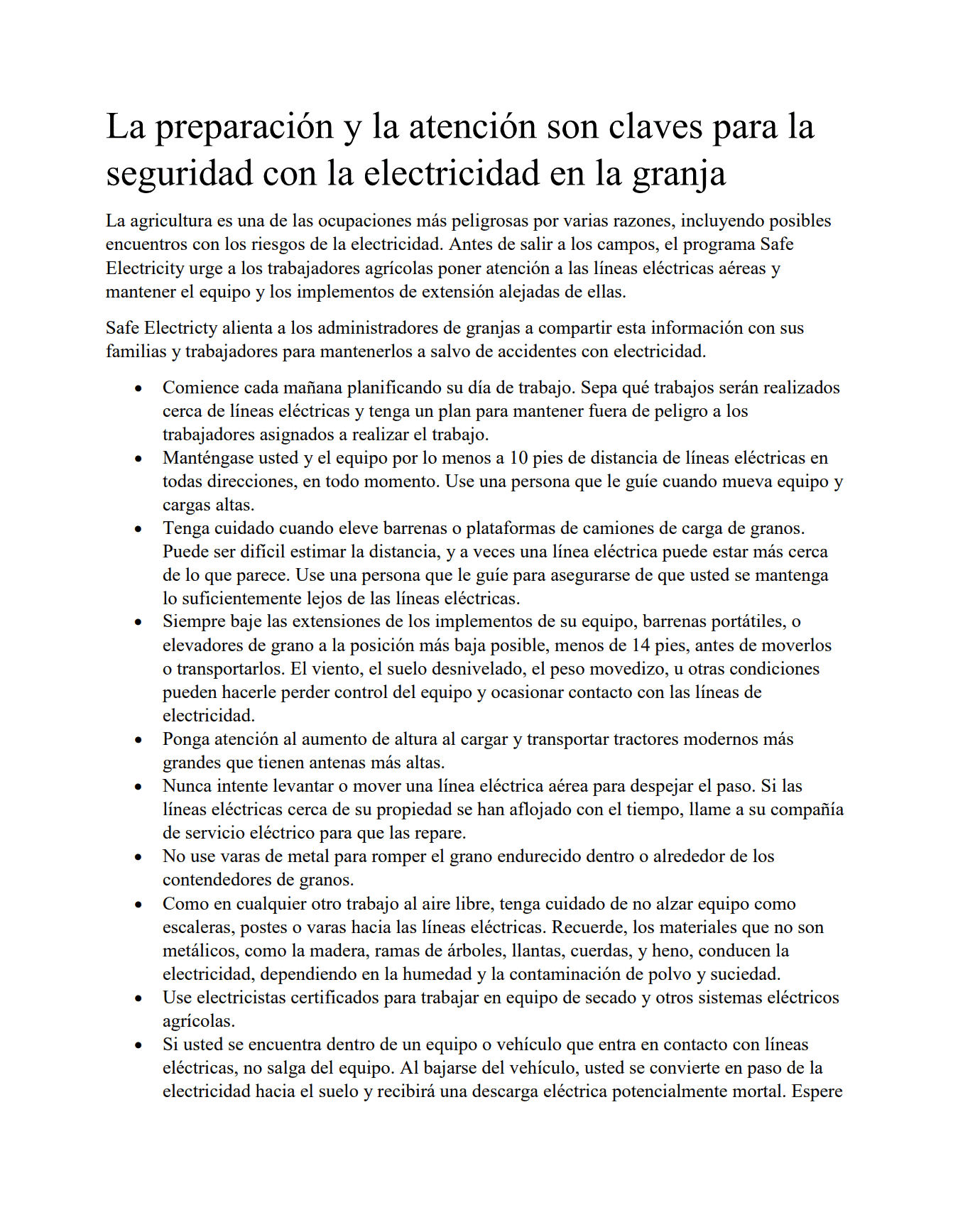Spring brings even more activity to the farm, with preparation for fieldwork and the growing season, young livestock, and all the daily work that gets done. Take time to refresh on overhead and buried power lines and cables before moving augers or digging for your latest tile drainage. This article, republished from Safe Electricity, urges farmworkers to be aware of overhead power lines and to keep equipment and extensions far away from them.
Preparation and Awareness are Keys for Farm Electrical Safety
Republished with permission from SafeElectricity.org
Farming is among the more dangerous occupations for several reasons, including potential for encounters with electrical hazards. Before taking to the fields, the Safe Electricity program urges farm workers to be aware of overhead power lines and to keep equipment and extensions far away from them.
Safe Electricity encourages farm managers to share this information with their families and workers to keep them safe from electrical accidents.
- Start each morning by planning your day’s work. Know what jobs will happen near power lines and have a plan to keep the assigned workers safe.
- Keep yourself and equipment at least 10 feet away from power lines in all directions, at all times. Use a spotter when moving tall equipment and loads.
- Use care when raising augers or the bed of a grain truck. It can be difficult to estimate distance, and sometimes, a power line is closer than it looks. Use a spotter to make certain you stay far away from power lines.
- Always lower equipment extensions, portable augers, or elevators to their lowest possible level, under 14 feet, before moving or transporting them. Wind, uneven ground, shifting weight, or other conditions can cause you to lose control of equipment and make contact with power lines.
- Be aware of increased height when loading and transporting larger modern tractors with higher antennas.
- Never attempt to raise or move a power line to clear a path. If power lines near your property have sagged over time, call your utility to repair them.
- Don’t use metal poles when breaking up bridged grain inside and around bins.
- As in any outdoor work, be careful not to raise any equipment, such as ladders, poles, or rods, into power lines. Remember, non-metallic materials, such as lumber, tree limbs, tires, ropes, and hay, will conduct electricity, depending on dampness and dust and dirt contamination.
- Use qualified electricians for work on drying equipment and other farm electrical systems.
- If you are on equipment that contacts a power line, do not exit the equipment. When you step off the equipment, you become the electricity’s path to ground and receive a potentially fatal shock. Wait until utility workers have de-energized the line and confirmed it is safe for you to exit the vehicle. If the vehicle is on fire and you must exit, jump clear of the vehicle with both feet together. Hop as far from the vehicle as you can with your feet together. Keep your feet together to prevent current flow through your body, which could be deadly.
Electrical work around the farm can also pose hazards. Often, the need for an electrical repair comes when a farmer has been working long hours and is fatigued. At such times, it’s best to step back and wait until you’ve rested.



